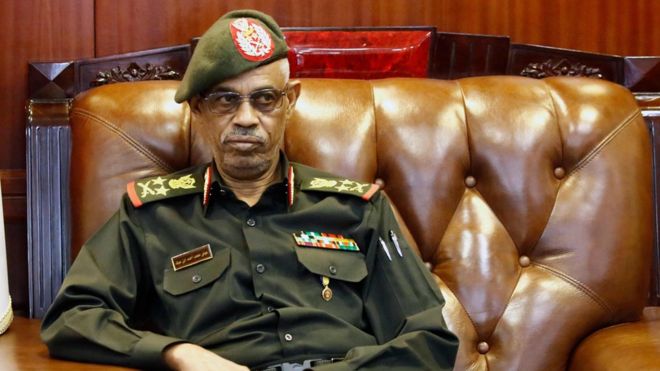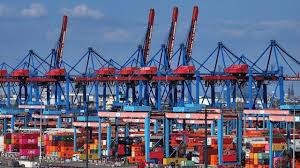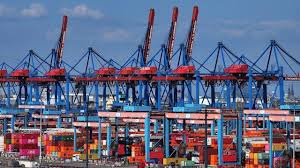Sudan’s military leader Awad Ibn Auf steps down

The head of Sudan’s military council has stood down a day after leading a coup that toppled long-time leader Omar al-Bashir amid a wave of protests. Defence Minister Awad Ibn Auf announced his decision on state TV. He named as his successor Lt Gen Abdel Fattah Abdelrahman Burhan. Protesters had refused to leave the streets, saying the coup leaders were too close to Mr Bashir. The army has said it will stay in power for two years, followed by elections. Mr Bashir’s downfall followed months of unrest that began in December over rising prices.
Mr Ibn Auf was head of military intelligence during the Darfur conflict in the 2000s. The US imposed sanctions on him in 2007.Protesters in Khartoum celebrated his departure, with people chanting phrases like “it fell again”.The Sudan Professionals Association, which has been spearheading the protests, said Mr Ibn Auf’s decision to step down was a victory for demonstrators.They are demanding a transition to civilian rule before they return home.
The new man in charge is also a top military figure, but the Associated Pres news agency reports that his record is cleaner than other Sudanese generals. He is also said to have met with protesters to hear their views.
Mr Bashir has been indicted by the International Criminal Court (ICC) on charges of war crimes and crimes against humanity over the Darfur conflict.
Despite the president’s removal on Thursday, demonstrators refused to disperse, camping out outside the army headquarters in the capital, Khartoum, defying a curfew declared by the military.On Friday, a spokesman for the military council said the army was not seeking power and Sudan’s future would be decided by the protesters – but said the army would maintain public order and disturbances would not be tolerated.
The military council also said it would not extradite Mr Bashir to face the ICC charges – which he denies. It has imposed a three-month state of emergency, with the constitution suspended.Police said at least 16 people were killed by stray bullets at protests on Thursday and Friday.
Awad Ibn Ouf has stepped down to be replaced by a general the senior military hope will be more acceptable to the protesters. The momentum is with civil society.The regime has floundered since this phase of protests began. The old ways of coercion haven’t worked and they face a civil society that is well organised and disciplined. This is a further retreat. It is unlikely to be the last.
And there’s the economic crisis brought about by misrule, corruption and loss of oil revenues. Even the regime’s friends in the Middle East and Asia will think twice about rescue packages if it looks like a new version of the old venality and brutality. That’s an important pressure.
This is an exciting moment. Just think about the role of women in all of this, of social media and civil society. It’s happening in Sudan but the significance of these forces working peacefully for change is universal. Yes it’s very precarious, but also full of possibility.





